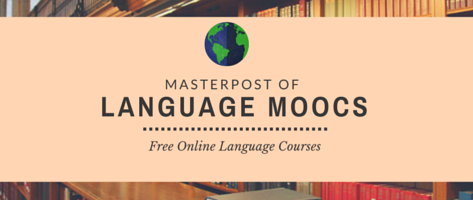A blog to help me to start learning Spanish language. 25, she/her. Native: Russian // Advanced: English // Elementary: Esperanto
Don't wanna be here? Send us removal request.
Text
What should you be reading to maximize your language learning?

It’s easy to get overwhelmed by the sheer amount of literature we can learn from. Baby books bore you, but you’re not ready for any type of novel, so what’s left?
Here are some tips
For beginner/A1/A2 learners
Watch a YouTube video in your target language, then read the comments
you’ll already have vocabulary from watching the video, most of the comments will probably use that vocab
it’s a short enough text that you won’t get fatigued
the only downside is that sometimes people utilize abbreviations and slang terms, but even these are good to know
Read news headlines and if you find one you understand almost fully, try to read the full article
sometimes the vocabulary used is not common in everyday usage, but it’s a total win for an A1 learner to fully read and mostly understand any text
while vocab is not used everyday, it will give you the ammunition to talk about that particular topic
Watch Netflix in target language with subtitles in the same language
believe it or not, you will learn to read better, especially because you don’t have to understand written description of visuals (usually uses very niche vocab) or emotion
and now you can slow down or speed up
I watched DARK in German before I felt like I could read a book, and I understood 85% of it. This is because I looked up some vocabulary in the first episodes and they continued to use it throughout the show so it really cemented in my head to the point where I don’t even think about it. Now, I had to rewatch some conversations the characters had, but that’s much better for understanding than switching it to English or looking up full phrases and sentences.
For intermediate/B1/B2 learners
read fanfiction
it’s ALWAYS good to read about something you’re interested in so if you like any major movies, books, television, this is the perfect option for you
most people use relatively basic language and you can choose the length
find a comic book or graphic novel
like watching tv, that visual aid really helps with understanding of the plot without all those tricky descriptions
read a book in your target language that you’ve read and loved in your native language
this is by far my favorite way
you don’t have to worry about trying to understanding the bigger picture because you already know what’s happening/what will happen, you really have to discover the meaning of each sentence and then you begin to picture the scene using only your target language
Check out my other post for methods of how to get the most out of reading !
8K notes
·
View notes
Text
Two weeks of the course - done!
The fact that I'm constantly talking about linguistics makes me feel weird
0 notes
Text
So I finally decided that I want to know more about linguistics.
Recently I finished "Through the Language Glass" by Guy Deutscher which was really interesting but I've heard most of that information in my Linguistic Anthropology course.
And today I started a course "Miracles of Human Language: An Introduction to Linguistics" on Coursera.
Why are there so few linguistic courses there? I am particularly interested in phonetics and and could hardly find anything on that topic.

0 notes
Text
abecedario
a - like russian [a] b - at the beginning or after m and n - like english [b] - otherwise [β] c - before e, i - like english [θ] - otherwise [k] d - at the beginning or after n, l - like english [d] - in the middle of the word - something like english [ð] - at the end - really weak [d] e - like russian [э] f - like english [f] g - before e, i - like russian [x] - otherwise - like russian [г] h - always mute i - at the beginning: like russian [и] - after vowels: like russian [й] - before vowels: close to russian [й] j - like russian [x] k - like english [k] l - something between russian [л] and [ль] m - at the end - like english [ɲ] - otherwise - like english [m] n - at the beginning - like english [n] - at the end and before c - like english [ɲ] - before v - like english [m] ñ - like russian [нь] o - like russian [o] p - like english [p] q - like english [k] r - a bit harder than russian [р] s - before deaf consonant - like english [s] - before sonorous consonant - like english [z] t - like english [t] u - like russian [у] - do not pronounce it in que, qui, gue, gui - pronounce it in güe, güi v - at the beginning or after m and n - like russian [б] - otherwise [β] x - before a consonant - like english [ks], [s] - before a vowel - like english [gz] y - between two consonants - like russian [и] - near vowels - like russian [й] z - like english [θ]
diptongos
ai - [ай] ei - [эй] oi - [ой] ia - [йа] ie - [йэ] io - [йо] iu - [йу] ui - [wи]
triptongos
iai - [йай] iei - [йэй] ioi - [йой] uai - [wай] uei - [wэй] uoi - [wой]
combinations of consonants
ch - like russian [ч] ll - like russian [ль] or [й]
0 notes
Text
Just downloaded a self-study book. Today I need to begin a first chapter and start to learn the alphabet
0 notes
Text
Free Online Language Courses

Here is a masterpost of MOOCs (massive open online courses) that are available, archived, or starting soon. I think they will help those that like to learn with a teacher or with videos. You can always check the audit course or no certificate option so that you can learn for free.
American Sign Language
ASL University
Sign Language Structure, Learning, and Change
Arabic
Arabic Without Walls
Madinah Arabic
Moroccan Arabic
Armenian
Depi Hayk
Bengali
Learn Bangla (Register to see course)
Catalan
Parla.Cat
Speak Cat
Chinese (Mandarin)
Beginner
Chinese for Beginners
Chinese Characters for Beginners
Chinese for HSK 1
Chinese for HSK 2
Chinese for HSK 3 I & II
Chinese for HSK 4
Chinese for HSK 5
Mandarin Chinese Level I
Mandarin Chinese Essentials
Mandarin Chinese for Business
More Chinese for Beginners
Start Talking Mandarin Chinese
UT Gateway to Chinese
Intermediate
Intermediate Business Chinese
Intermediate Chinese Grammar
Mandarin for Intermediate Learners I
Dutch
Introduction to Dutch
English
Online Courses here
Resources Here
Faroese
Faroese Course
Finnish
A Taste of Finnish
French
Beginner
AP French Language and Culture
Elementary French I & II
Français Interactif
Vivre en France - A1
Vivre en France- A2
Intermediate & Advanced
French Intermediate course B1-B2
Passe-Partout
Travailler en France A2-B1
Vivre en France - B1
German
Beginner
Deutsch im Blick
German Project
German at Work
Goethe Institute
Gwich’in
Introduction to Gwich’in Language
Hebrew
Biblical Hebrew
UT Austin
Hindi
A Door into Hindi
Virtual Hindi
Icelandic
Icelandic 1-5
Indonesian
Learn Indonesian
Irish
Irish 101, 102, 103, 104, 105, 106, 107
Italian
Beginner
Beginner’s Italian I
Introduction to Italian
Intermediate & Advanced
AP Italian Language and Culture
Intermediate Italian I
Advanced Italian I
Japanese
Genki
Japanese JOSHU
Japanese Pronunciation
Marugoto Courses
Tufs JpLang
Korean
Beginner
First Step Korean
How to Study Korean
Introduction to Korean
Learn to Speak Korean
Pathway to Spoken Korean
Intermediate
Intermediate Korean
Norwegian
Introduction to Norwegian I, Norwegian II
Norwegian on the Web
Persian
Easy Persian
PersianDee
Polish
Online Course
Portuguese
Pluralidades em Português Brasileiro
Russian
Beginner
A1 Course
I speak Russian
Intermediate
B1 Course
B1+ Course
B2.1 Course
B2.2 Course
Spanish
Beginner
AP Spanish Language & Culture
Basic Spanish I, Spanish II
Spanish for beginners
Spanish for Beginners 1, 2, 3, 4, 5, 6
Spanish Vocabulary
Advanced
Corrección, Estilo y Variaciones
Leer a Macondo
Swahili
Online Course
Turkish
Online Course
Ukrainian
Read Ukrainian
Speak Ukrainian
Welsh
Beginner’s Welsh
Discovering Wales
Yoruba
Yorùbá Yé Mi
Multiple Languages
Ancient Languages
More Language Learning Resources & Websites!
Last updated: May 2019
214K notes
·
View notes
Text
From Beginner to Intermediate: an intense plan for advancing in language
Introduction
I've studied Spanish at school for 3 years and now I'm at a low B1 level. I can actually understand pretty well while listening or reading but I can't communicate fluently.
This plan will include vocabulary build up, some grammar revision, a lot of listening, reading and writing. And could be used for the most languages, not only Spanish.
Plan
Every day:
Conjugate one verb in present, past and future tenses
Make a list about 10 - 30 words long
Create flashcards with them and start learning them (I use Quizlet for flashcards)
Revise yesterday's set of flashcards
2-3 times a week:
Read an article or a few pages from a book
Write a few sentences about anything in your target language
Listen to one episode of podcast (at least one)
Once a week or every two weeks:
Watch a movie in your target language, preferably animated movie as the language used there is easier. You can watch with subtitles
Grammar exercises
Translate some short text
Once a month:
Write something longer, like an essay or report, on chosen topic
Additionally:
Talk to yourself, to your friends, to your pets
Text with someone
Look at the transcription while listening to the podcast for second time
Repeat what you hear (in podcast or movie)
Check words you don't know from the listening and reading
Read out loud
Listen to music in your target language - you can even learn the text and sing along
Watch YouTube in your target language
Change your phone language to the one you're learning
Think in you target language!!!
***This is very intense plan for self-learners, you don't have to do all of these things in the given time. Adjust it to your own pace. I'll try to stick to this, if I have enough time.***
10K notes
·
View notes
